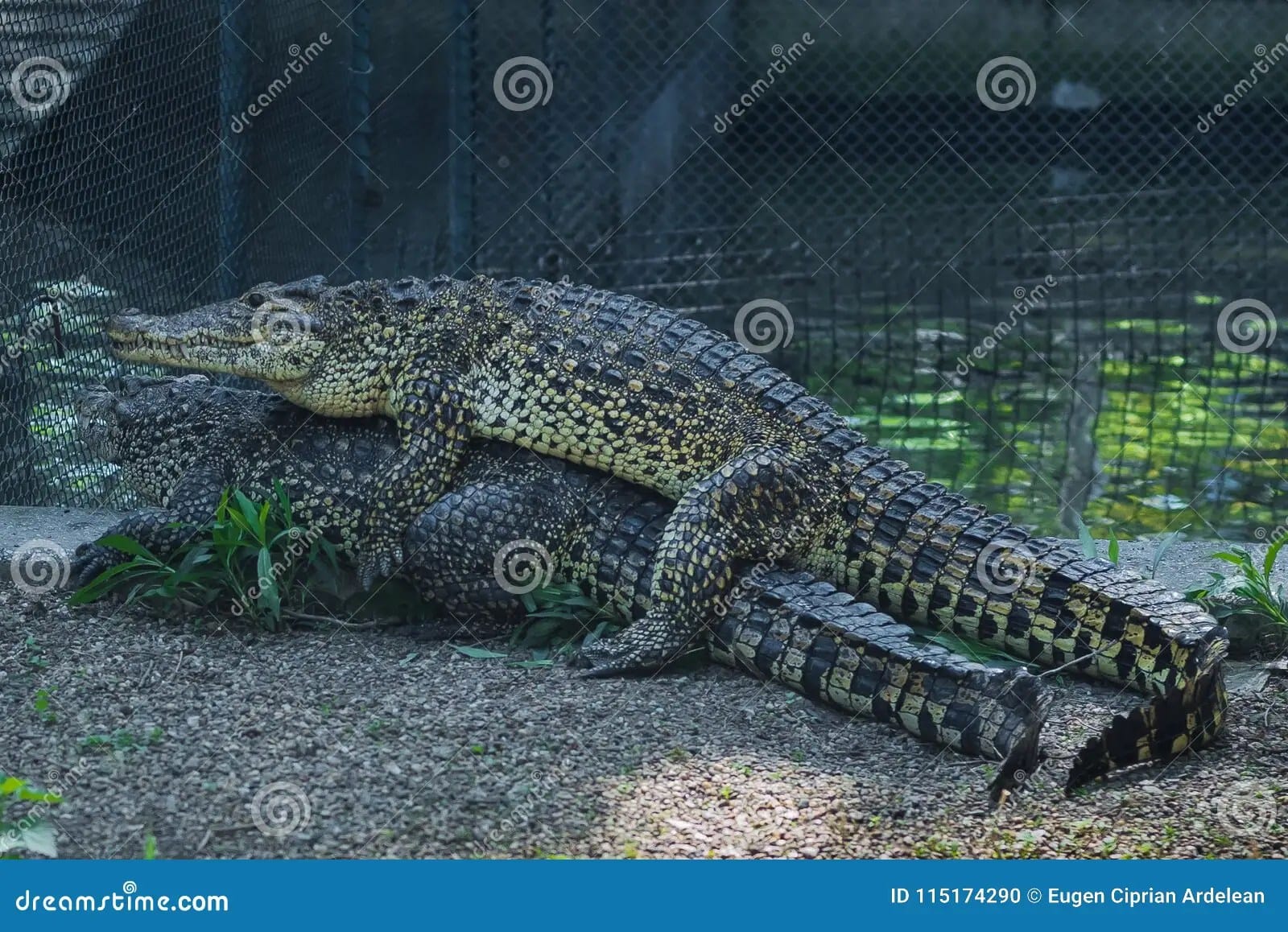Have you ever wondered if giant reptiles like alligators and crocodiles can have baby hybrids? It’s a question that sparks curiosity and even fear, but the answer lies in the fascinating world of genetics and evolution. While these powerful predators share a superficial resemblance, their ability to interbreed is scientifically improbable. Let’s delve into the reasons why the idea of an alligator-crocodile hybrid remains firmly in the realm of myth.
Why Can’t Alligators and Crocodiles Mate?
The simple answer is genetic incompatibility. While alligators and crocodiles belong to the same order, Crocodylia, they diverged into separate families millions of years ago. This separation led to distinct evolutionary paths, resulting in significant genetic differences.
Genetic Mismatches: A Tale of Two Families
Alligators belong to the Alligatoridae family, while crocodiles belong to the Crocodylidae family. This distinction is crucial because successful interbreeding typically only occurs within the same genus, and even then, offspring are often sterile.
One of the most significant barriers to alligator-crocodile hybridization is their differing chromosome counts. Alligators possess 40 chromosomes, while crocodiles have 32. This fundamental difference in genetic makeup makes it virtually impossible for their DNA to combine and produce viable offspring. Imagine trying to build a house using two sets of blueprints with mismatched instructions—the result would be chaos.
Out-of-Sync Romance: Different Mating Behaviors and Timing
Even if, hypothetically, an alligator and crocodile attempted to mate, their distinct mating behaviors and timing would pose a significant obstacle. Alligators typically breed between early April and June, while crocodile mating seasons vary by species but generally occur later in the year. For instance, Nile crocodiles mate from late June to mid-August.
Furthermore, alligators and crocodiles employ unique courtship rituals involving vocalizations, postures, and behaviors that are specific to their species. An alligator wouldn’t recognize or respond to a crocodile’s advances, and vice versa.
Worlds Apart: Geographic Isolation Limits Encounters
Adding another layer of improbability to the hybrid myth is the geographic isolation of alligators and crocodiles. Alligators primarily inhabit the southeastern United States and eastern China, while crocodiles boast a much wider global distribution, including Africa, Asia, Australia, and the Americas. Though some overlap exists in their ranges, the likelihood of these reptiles encountering each other in the wild and attempting to interbreed remains extremely low.
Debunking the “Crocogator” Myth: No Scientific Evidence Exists
Rumors and anecdotal sightings of “crocogators” or “allicrocs” have circulated for years, often fueled by blurry photos or misidentifications. However, no scientific evidence supports the existence of alligator-crocodile hybrids. While some closely related crocodile species can hybridize, resulting in often sterile offspring, no such occurrences have been documented between alligators and crocodiles.
The lack of scientific evidence, combined with the significant genetic and behavioral barriers, strongly suggests that alligator-crocodile hybrids are simply not possible in the natural world.
The Allure of Hybrids: Why the Fascination?
Despite the scientific improbability, the idea of an alligator-crocodile hybrid continues to captivate our imaginations. This fascination likely stems from a combination of factors:
- Popular Culture: Movies, books, and folklore often depict hybrid creatures, blurring the lines between reality and fantasy.
- Human Curiosity: We are naturally drawn to the unusual and the unknown. The idea of a hybrid creature, combining traits of two formidable predators, piques our curiosity about the limits of nature.
- Desire to Witness the Extraordinary: Hybrid animals, particularly those involving apex predators, represent a break from the norm, fueling our desire to witness something truly unique.
While the existence of an alligator-crocodile hybrid remains a captivating myth, it’s essential to rely on scientific evidence and understanding to separate fact from fiction.
Could Climate Change Influence Future Hybridization?
As climate change alters habitats and forces species to adapt, some scientists ponder whether this could lead to increased interactions between alligators and crocodiles. While the possibility of future hybridization cannot be definitively ruled out, the significant genetic barriers discussed earlier would still need to be overcome.
Ethical Considerations: Manipulating Nature’s Course
The prospect of artificially creating alligator-crocodile hybrids through genetic manipulation also raises ethical concerns. Interfering with the natural order of species can have unforeseen and potentially detrimental consequences for animal welfare and ecological balance. It’s crucial to approach such endeavors with caution and prioritize the well-being of the animals and their ecosystems.
Conclusion: Celebrating the Diversity of Crocodilians
The impossibility of alligator-crocodile hybrids underscores the incredible diversity and complexity of the natural world. While we may be fascinated by the idea of hybrid creatures, the reality is that evolution has shaped alligators and crocodiles into distinct species with unique adaptations and roles in their ecosystems.
Instead of seeking to create something that nature has not, perhaps we should focus on appreciating and conserving these remarkable reptiles in their natural forms. By understanding the science behind their differences, we can better appreciate the wonders of evolution and the importance of protecting the biodiversity of our planet.
Did you know that some amphibians can survive both on land and water? Can Axolotls Go on Land? Some can even hold their breath for an extended period of time! Can Frogs Breathe Underwater? Read more to find out.
- Unlock Water’s Symbolism: A Cross-Cultural Exploration - April 20, 2025
- Identify Black and White Snakes: Venomous or Harmless? - April 20, 2025
- Unlocking Potential: Origins High School’s NYC Story - April 20, 2025















